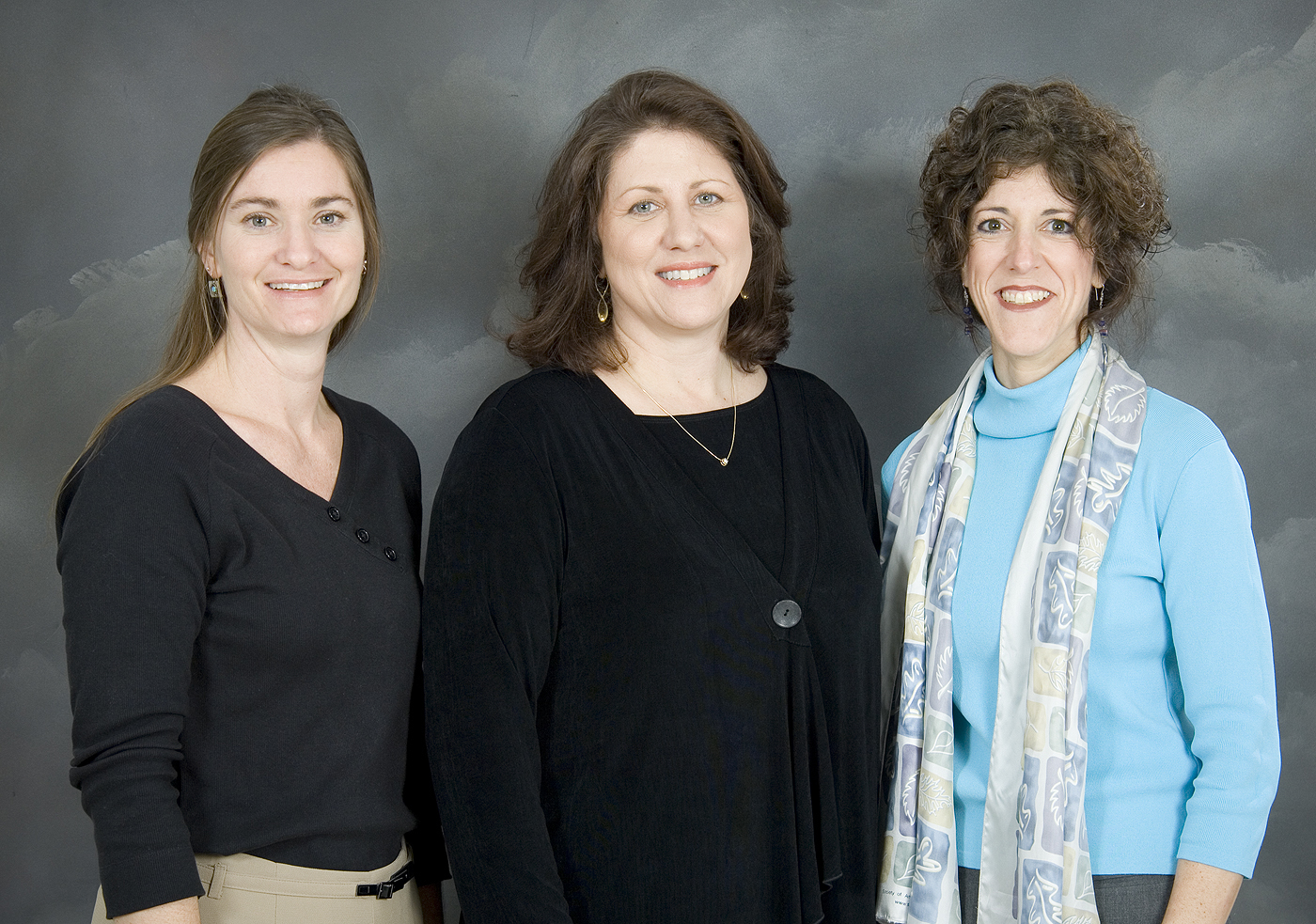Contact: Phil Hearn

STARKVILLE, Miss.--Three faculty members in Mississippi State's biological sciences department are newly designated National Academies teaching fellows in recognition of innovative classroom techniques that foster effective undergraduate learning.
Associate professor Giselle Thibaudeau Munn, along with instructors Mary Celeste Reese and Emily Gay Williamson, are among only 42 educators around the country receiving the National Academies' title of 2006 Education Fellow in the Life Sciences.
"During a time when many administrators place greater merit on research output by professors over teaching accomplishments, it is good to know the National Academy of Science, Howard Hughes Medical Institute and National Science Foundation, and MSU are working to enhance the undergraduate experience, incorporate research as a pedagogical tool and revitalize academics," said Thibaudeau. (Ed. note: This is her professional name.)
"These groups realize that our students are our future and the quality of their education must be given more significance," added the Leominster, Mass., native. A faculty member since 1994, she directs the university's Electron Microscope Center.
The fellows represent teams from 19 research-intensive colleges and universities selected for the NA's Summer Institute on Undergraduate Education in Biology at the University of Wisconsin, Madison. Selections were based on their ideas for enhancing undergraduate biology education and a commitment by their universities to support teaching innovations.
The teams also were selected based on their willingness to collaborate on the development of "teachable units"--curriculum packages encompassing up to a week of classes and laboratory activities on a specific topic--and their pledge to implement at least one of the units in courses they teach during the current academic year.
"I teach mainly large freshman-level biology classes, where generating student enthusiasm and involvement is a challenge," said Reese, an instructor and Starkville native. "My goal is to create a more student-oriented teaching environment, where students take ownership of their own learning.
"In some cases, I use technology such as PowerPoint slides and video clips in the classroom as a tool to engage and assess student learning," explained the 1991 Mississippi University for Women biology graduate.
Reese, who completed a master's in historical ecology from MSU in 2000, said she includes group discussions of case studies in a human anatomy course she teaches. She and Williamson also are working on a plan to revamp a non-majors biology course and create an inquiry-based laboratory for students.
"Students will ask the questions and, using the scientific method, create their own experiment, as opposed to the traditional cookbook-style laboratories," Reese added.
A New Albany native, Williamson joined the faculty as an instructor and laboratory coordinator in 1988. She earned bachelor's degrees in biology and psychology in 1981, and a master's in pharmaceutical sciences in 1987, all from the University of Mississippi.
"Our future plans include implementing non-traditional teaching methods such as the use of audience response systems in the laboratories and lectures," Williamson said. "Audience response systems allow students to participate in activities anonymously."
The summer institute grew out of a recommendation in a 2003 report issued by the National Academies' National Research Council titled "Bio2010: Transforming Undergraduate Education for Future Research Biologists."
Calling for changes in the way colleges teach biology, the report contended undergraduate biology education has failed to keep pace with revolutionary advances in biomedical research that require those in the field to have a good understanding of other scientific disciplines, such as math and computer sciences. It urged instructors to integrate other subjects into their biology classes.
"When we approach teaching similarly to the way we approach science (scientific method), we create an environment for students to adopt a lifelong learning mentality--a philosophy that is beneficial to the student no matter what path they wish to pursue," said Thibaudeau, who holds a doctorate in developmental cell biology from the University of Kansas, Lawrence. She completed post-doctoral work at Princeton University.
Professor Nara Gavini heads MSU's biological sciences department.
NEWS EDITORS/DIRECTORS: For more information, contact Dr. Munn at (662) 325-7572 or Giselle@emcenter.msstate.edu; Reese at 325-8825 or mcr4@biology.msstate.edu; or Williamson at 325-7574 or gayw@biology.msstate.edu.